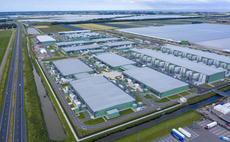Cost savings identified as an important factor, but only a third of businesses looking to smart meters
Energy costs are a concern for firms Over half of businesses believe technology for carbon monitoring and measurement will have more impact on reducing their emissions than any other, according t...
To continue reading this article...
Join Computing
- Unlimited access to real-time news, analysis and opinion from the technology industry
- Receive important and breaking news in our daily newsletter
- Be the first to hear about our events and awards programmes
- Join live member only interviews with IT leaders at the ‘IT Lounge’; your chance to ask your burning tech questions and have them answered
- Access to the Computing Delta hub providing market intelligence and research
- Receive our members-only newsletter with exclusive opinion pieces from senior IT Leaders




















